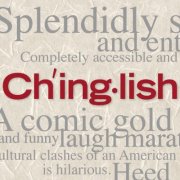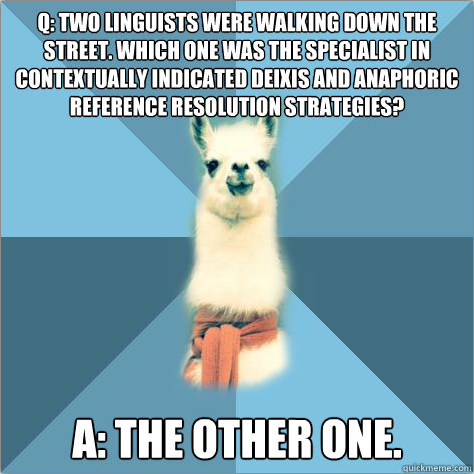It is asserted that the following passage contains an elementary grammatical error:
When I called to see her in June, 1842, she was gone a-hunting in the woods, as was her wont (I am not sure whether it was a male or female, and so use the more common pronoun), but her mistress told me that she came into the neighborhood a little more than a year before, in April, and was finally taken into their house; that she was of a dark brownish-gray color, with a white spot on her throat, and white feet, and had a large bushy tail like a fox; that in the winter the fur grew thick and flatted out along her sides, forming stripes ten or twelve inches long by two and a half wide, and under her chin like a muff, the upper side loose, the under matted like felt, and in the spring these appendages dropped off. [Henry David Thoreau, Walden; or, Life in the Woods, 1854.]
Read the rest of this entry »

 Tonight is the opening night for a new Broadway play called "
Tonight is the opening night for a new Broadway play called "

